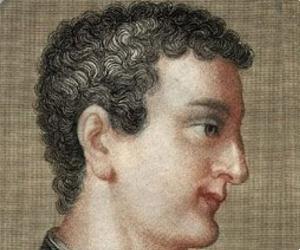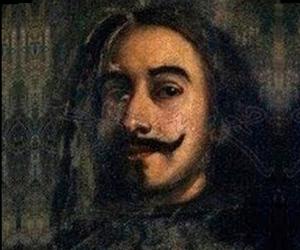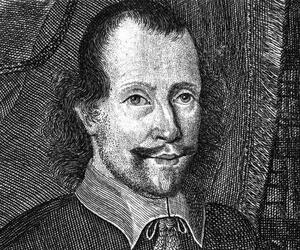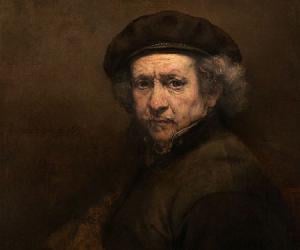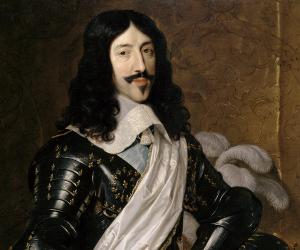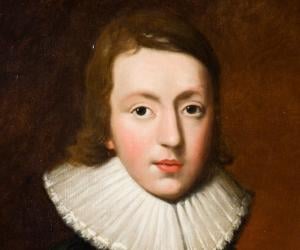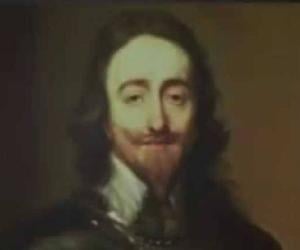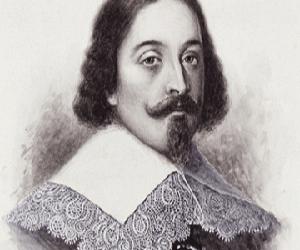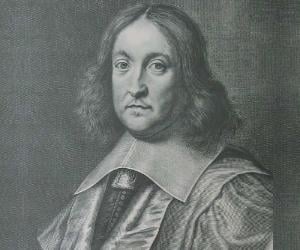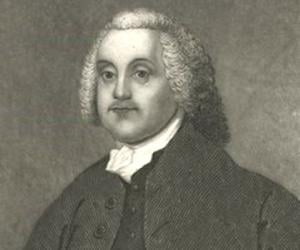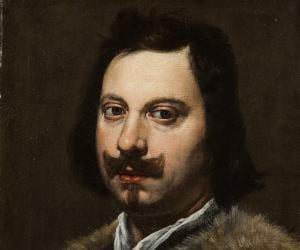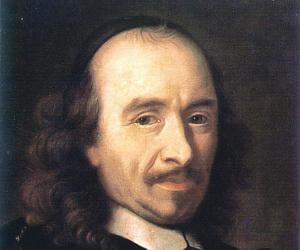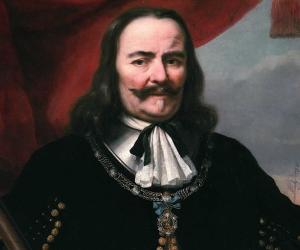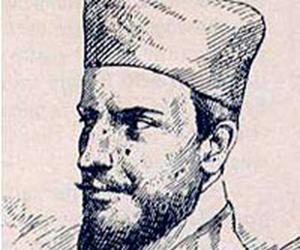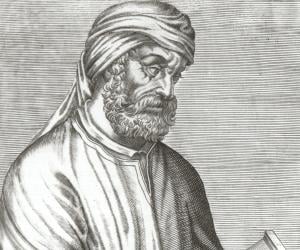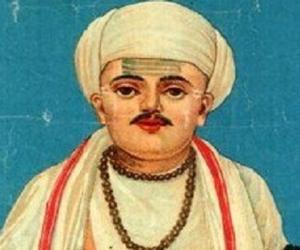Rembrandt was a Dutch printmaker, painter, and draughtsman. A master in three major art media, Rembrandt is widely considered the most important visual artist in Dutch art history and one of the greatest of all time. He is also considered the greatest etcher in the history of printmaking. His life and work inspired several films, including the 1936 movie Rembrandt.
Louis XIII of France reigned as the King of France between 1610 and 1643. He is best remembered for saving the kingdom from the mismanagement of his mother Marie de' Medici, who was exiled by a 16-year-old Louis XIII. He is also credited with popularizing wigs among men, which had not been fashionable since antiquity.
John Milton was an English poet whose epic poem Paradise Lost is widely regarded as one of the greatest works of literature. Milton's other celebrated work Areopagitica is counted among history's most impassioned and influential defenses of freedom of the press and freedom of speech. John Milton’s works have influenced other prominent writers, such as Thomas Hardy and George Eliot.
Charles I, the King of England, Scotland and Ireland from 1625 to 1649, was said to be authoritarian and was in constant battle with the Parliament over the issue of royal prerogative. The friction led to a civil war from 1642 to 1645 between him and the English and Scottish Parliaments. He was defeated and executed in 1649 for treason.
Dutch explorer and Dutch East India Company merchant Abel Tasman was the first European to reach the shores of Tonga, New Zealand, Fiji, and Van Diemen's Land, the last of which was named Tasmania in his honor. His circumnavigation of Australia proved that it was a separate continent.
Seventeenth-century French mathematician Pierre de Fermat was also a qualified lawyer. Remembered mostly for his contribution to number theory, probability, calculus, and analytic geometry, he was also known for his proficiency in six languages, including Greek and Latin. One of his major works, Introduction to Loci, was released posthumously.
Roger Williams was a 17th-century Puritan minister and theologian. He founded Providence Plantations, which later became the US state of Rhode Island. He advocated for fair dealings with Native Americans and believed in religious freedom. He disapproved of perpetual chattel slavery. After being expelled by the Puritan leaders, he founded the First Baptist Church in America.
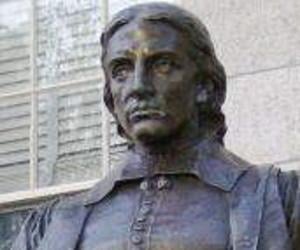
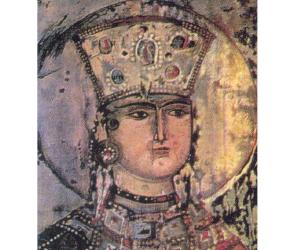
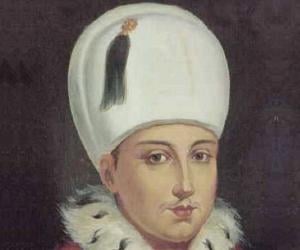
Osman II reigned as the Sultan of the Ottoman Empire from 1618 until his regicide in 1622. Despite becoming the emperor at the young age of 14, Osman II sought to exercise his powers as a ruler. Renowned for his bravery, Osman II led the Ottoman campaign against Sigismund III, the King of Poland, during the Moldavian Magnate Wars.
Evangelista Torricelli, a student of Galileo, later made a name for himself as a physicist and a mathematician with his invention of the barometer. He also laid down the Torricelli’s theorem and discovered the Torricellian vacuum. The torr, a unit of pressure, bears his name.
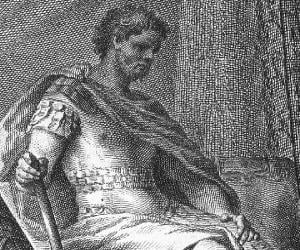
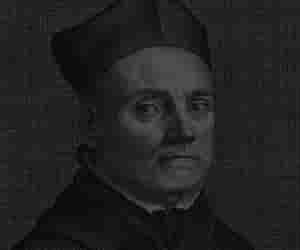
Known as the last Renaissance man, Athanasius Kircher was a German Jesuit priest who taught at the Roman College for 4 decades. He was also obsessed with Sinology and Egyptology, and studied everything from fossils to microbes. He was also interested in medicine and invented machines such as the magnetic clock.
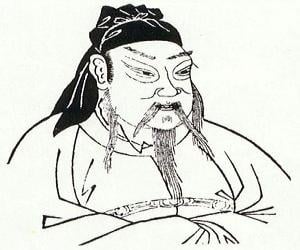
Guan Yu was nicknamed Beautiful Beard for his long, flowing beard. Featured in literary works such as Romance of the Three Kingdoms, Guan was a Chinese military general who served Liu Bei of the Eastern Han dynasty. Lord Guan is now revered as a deity in Chinese folk culture.

Thomas Browne was an English author and polymath who wrote several books on varied fields, such as religion, medicine, science, and the esoteric. Browne incorporated different styles of writing depending upon the genre he was working on. Over the years, his writing has influenced several other writers like Herman Melville. Browne's works have been admired by personalities like William Osler.
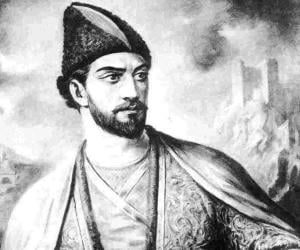
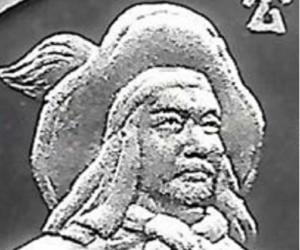
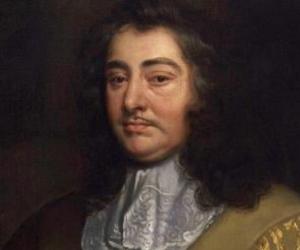
Born into a family of lawyers, Pierre Corneille, too, initially studied law. However, both he and his younger brother, noted playwright Thomas Corneille, deviated from their family profession. Part of the Society of Five Authors, selected by Cardinal de Richelieu, Corneille later grew into one of the greatest 17th-century tragedians.
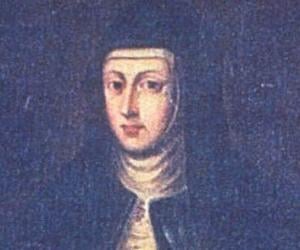
Franciscan abbess and spiritual-writer María de Agreda was a noted mystic of her era. She served as the spiritual and at times political advisor to King Philip IV of Spain for over two decades and is best-known for the correspondence she had with the King besides reports of her bilocation. She penned 14 books, including the most notable Mystical City of God.
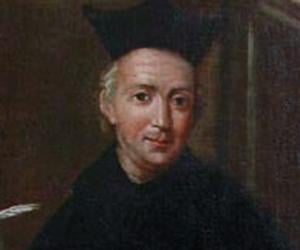
Spanish baroque author and philosopher Baltasar Gracian was a leading proponent of the conceptismo style. Inspired by his priest uncle, he took Jesuit vows. His notable works include Subtlety and the Art of Genius and the three-part novel The Critick, with the latter written under a pseudonym.
Michiel de Ruyter was a Dutch admiral best remembered for his achievements during the Anglo-Dutch Wars. An important member of the Dutch Navy during his time, De Ruyter is widely considered one of the most talented admirals of all time. Regarded as a Dutch folk hero, Michiel de Ruyter's life and career inspired the 2015 Dutch film, Michiel de Ruyter.
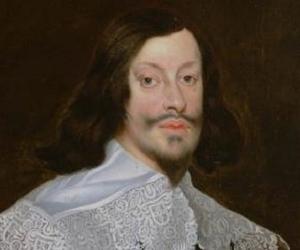
Holy Roman Emperor Ferdinand III is largely held responsible for ending the Thirty Years’ War in 1648 with 2 peace treaties known as the Peace of Westphalia. He also conspired against Generalissimo Albrecht von Wallenstein when he was denied control of the imperial army. He was also instrumental in the Peace of Prague.
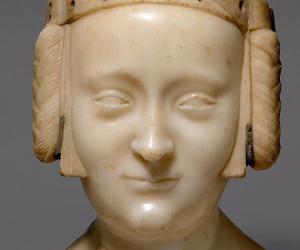
Seventeenth-century Italian composer Francesco Cavalli had taken up the surname of his Venetian patron Federico Cavalli. He was initially a soprano at the St. Mark's Basilica. While he mainly composed for operas, he also developed the early recitative-aria technique. Two of his most notable works were Erismena and L’Ormindo.
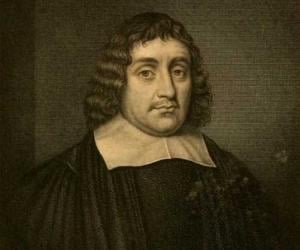
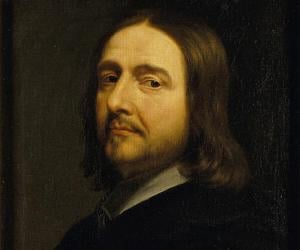
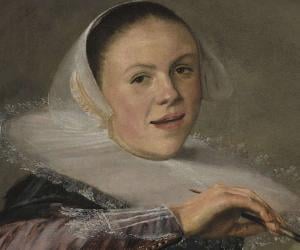
Born to pagan parents in North Africa, Tertullian was initially gearing up to be a lawyer. Following his conversion to Christianity in Rome at about 40, he became a leader of the African church and wrote several Christian treatises, to eventually become the father of Latin Christianity.

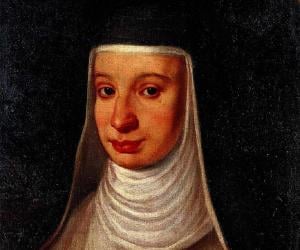
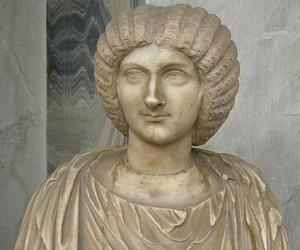
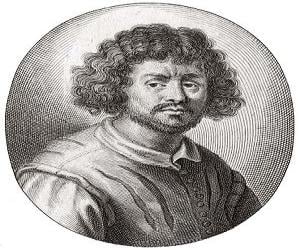
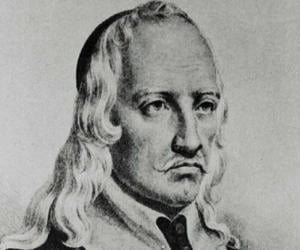
While he matriculated in math and taught the subject later, Giovanni Alfonso Borelli also made pioneering discoveries as a physicist and physiologist. With works such as De Motu Animalium, he revolutionized the field of biomechanics, explaining muscular movements with the help of statics and dynamics.
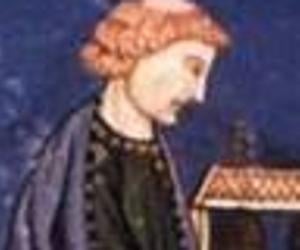
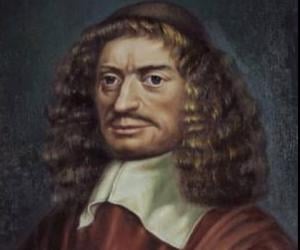

Fasilides, also known as Alam Sagad, was a 17th-century emperor of Ethiopia who belonged to the Solomonic dynasty. As soon as he came to power, he dismissed Catholic missionaries and relied on Muslim rulers of the coastal regions to terminate all contact with the European powers.
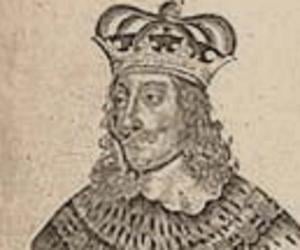
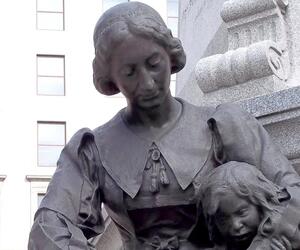
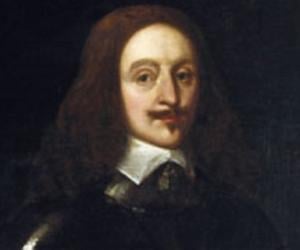
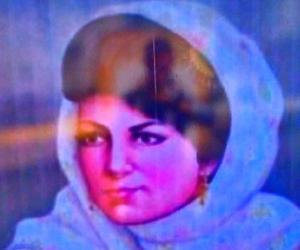
Marathi poet Sant Tukaram was one of the pillars of the Bhakti movement of Maharashtra. It is believed he began writing abhangas, or religious poetry, after being visited by Vitthal, an avatar of Lord Vishnu and Lord Krishna, in a dream. He is revered by the Varkari sampradaya.
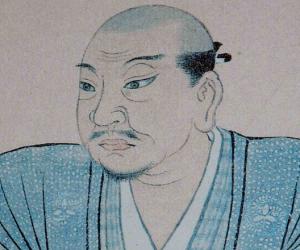
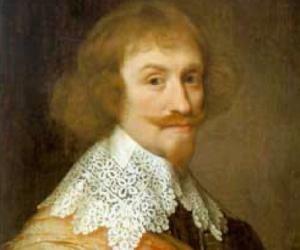
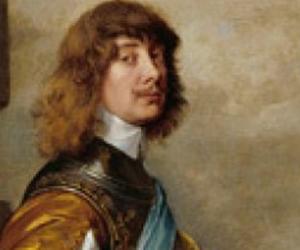
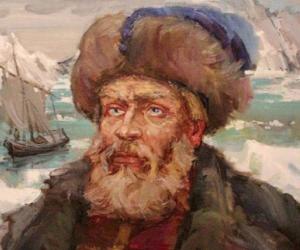
Although Russian explorer Semyon Dezhnev became the first European to pass through the Bering Strait, his achievement was forgotten for years, while Vitus Bering, who explored the same region 8 decades later, is credited with discovering it. Several Russian and Soviet icebreakers were named after him.
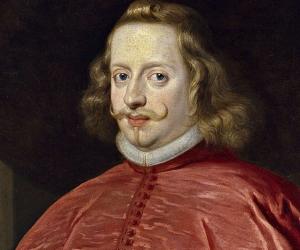
Cardinal-Infante Ferdinand of Austria was the Cardinal of the Holy Catholic Church. He also played an important role during the Thirty Years' War, where he served as a military commander. Cardinal-Infante Ferdinand is also remembered for his service as the governor of the Spanish Netherlands.
